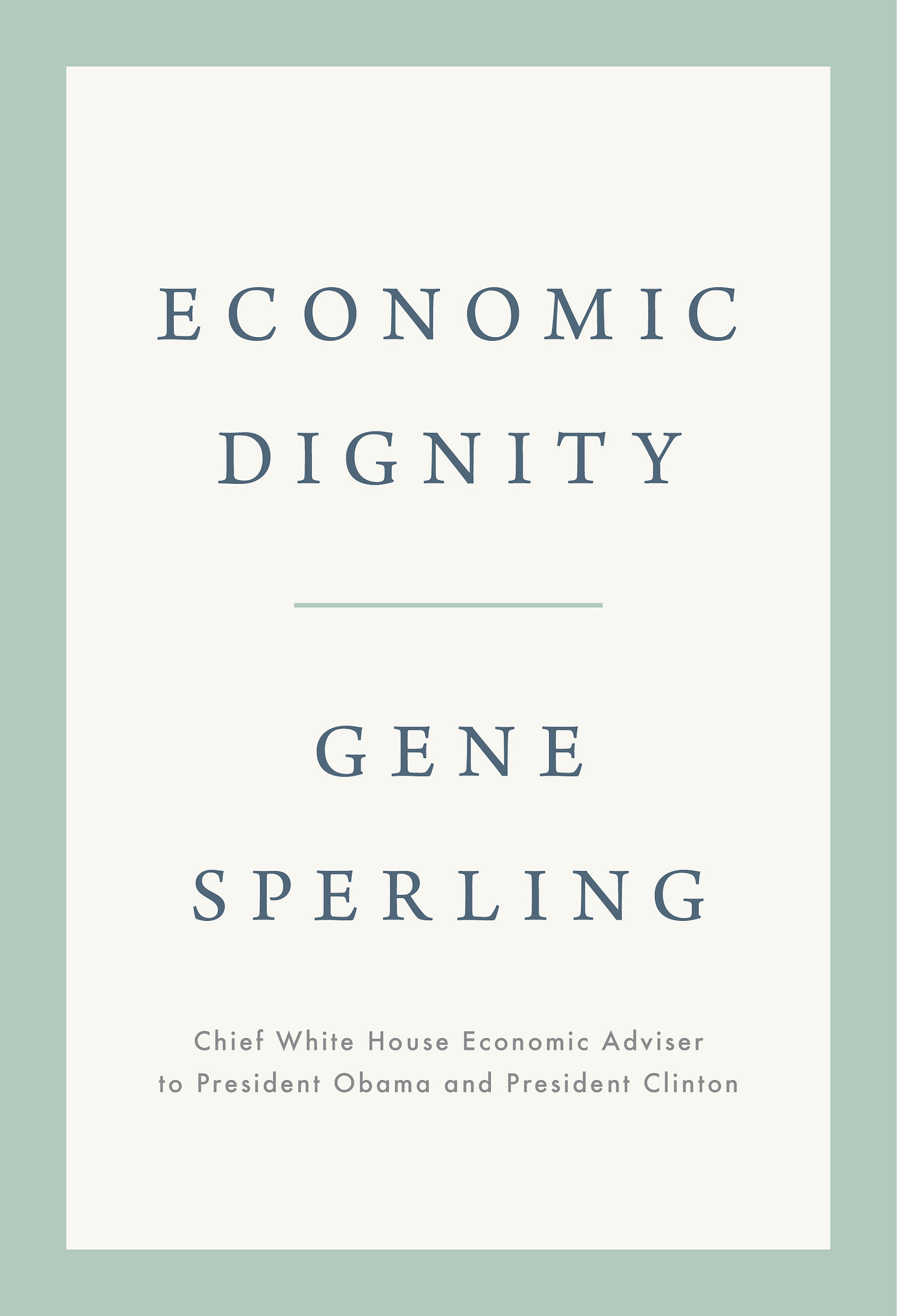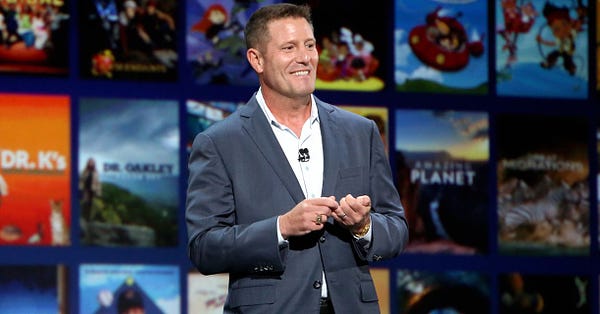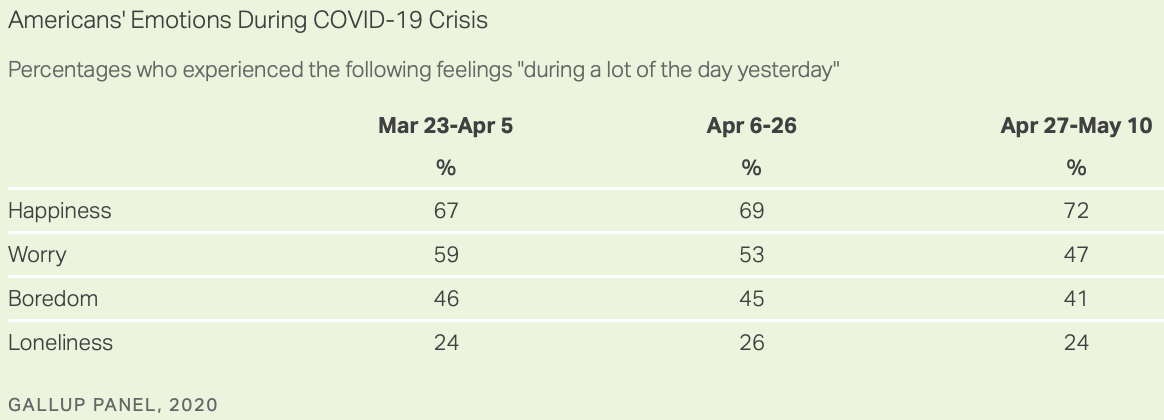Housekeeping:
Membership exclusive live event: I’ll talk with Gene Sperling, Director, U.S. National Economic Council under Presidents Obama & Clinton, about his new book “Economic Dignity” on Thursday at 12 pm ET. Register here.

Founding Member Rate: Like the newsletter? During this trial period, you 50% off the regular cost. Continued thanks to everyone who already has done so!
The World
Treasury Secretary Steven Mnuchin told a Senate panel the government is ready to provide more money and take more risk to expedite lending programs. Mnuchin warned that the economy risked “permanent damage” if states extend their shutdowns for months. Fed Chair Jerome Powell warned that the economy could face long-term damage if the policy response is not forceful enough. (Wall Street Journal, New York Times)
Risk managers expect a prolonged global recession, a World Economic Forum report showed. Half of risk managers expected bankruptcies and industry consolidation, the failure of industries to recover and high levels of unemployment, particularly among the young. (Reuters)
President Trump told the World Health Organization he would end funding if the organization did not “commit to substantive improvements within the next 30 days.” (New York Times)
Chinese President Xi Jinping defended his country’s handling of the pandemic, saying China has acted with transparency and “done everything in our power” to help other countries. Xi also called for global support of the World Health Organisation. (South China Morning Post)
Conflicting regulations could enable hundreds of publicly traded companies to keep PPP loans. The repayment deadline passed Monday with no word on how many companies returned the money. (Washington Post)
Airline carriers’ and airports’ new safety protocols will include temperature checks, more layovers, removing in-flight magazines, scrapping meal services, and rules for bathrooms. Delta will add flights to keep planes no more than 60% full. (Wall Street Journal, Reuters)
How Putin's Russia bungled the pandemic: The rapid spread of Covid-19 has strained a Russian health system that’s suffering from poor funding and incomplete post-Soviet reforms. (Bloomberg)
Sweden keeps restaurants and bars open despite its soaring death toll. More fatalities were recorded in April than in any one month since January 2000. (The Independent)
Notre Dame and the University of South Carolina announced fall enrollment plans: Open in August, cancel October vacations, end in-person classes near Thanksgiving, continue through finals remotely. (Notre Dame, Washington Post)
Economy
Lloyd Blankfein said the U.S. will have to stomach a spike in virus cases as the economy reopens. Stimulus efforts can’t go on indefinitely and policy makers can’t wait for a vaccine to reopen the economy, he said. JP Morgan Chief Executive Jamie Dimon said the pandemic must serve as a “wake-up call” to build a fairer society. (Bloomberg, The Guardian)
Walmart sales surged 10% in U.S., including a 74% jump in e-commerce. Home Depot, Lowe’s are primed for historic growth. (Wall Street Journal, Bloomberg)
Nasdaq plans new rules that would make IPOs more difficult for some Chinese companies. (Bloomberg)
China’s drive to become the developing world’s biggest banker is backfiring. Over the last two decades it unleashed a global lending spree of billions of dollars to expand influence. Borrowers put up ports, mines and other crown jewels as collateral. Now countries can’t pay the money back. (New York Times)
Germany and France joined forces to push for a €500 billion EU recovery fund. (Financial Times)
Almost two thirds of fund managers and traders think that they will work from home for at least one day a week after the pandemic, according to a Deutsche Bank survey. (The Times)
Technology
Alphabet CEO Sundar Pichai expects to be at 30% office capacity by the end of the year, with about 60% of Google employees allowed to come into work once a week. Square announced employees will be able to work from home permanently. (CNBC, The Verge)
Apple and the U.S. Department of Justice are reprising their fight over iPhone encryption, this time concerning a phone belonging to a suspect in the December shooting at the Naval Air Station in Pensacola, FL. (The Information)
Mark Zuckerberg is ‘worried’ about China’s influence on internet regulation, adding it would be up to Western democracies to devise a data privacy framework. (The Verge)
The Disney+ chairman is leaving to run the fast-growing mobile video app TikTok. Washington lawmakers already want to put TikTok's new chief in the hot seat. (Los Angeles Times, Washington Post)


Smart Links
Why Attorney General Bill Barr is mad at Apple. (Vox)
Data shows buggiest cities in the U.S. (Pest Control Technology)
How we could mine the moon for rocket fuel. (MIT Technology Review)
Global study confirms influential theory behind loss aversion. (Science Daily)
Pizzeria owner made money buying his own $24 pizzas from DoorDash for $16. (The Verge)
Good News
As states begin to reopen their economies, Americans are reporting emotional health improvements. Less than half of U.S. adults (47%) now say they worried a lot of the previous day -- down from 59% in late March/early April, when Gallup recorded an unprecedented increase. In addition, boredom has dipped five points, to 41%, and happiness has edged up five points, to 72%. Loneliness has held steady, with about a quarter of Americans continuing to say they experienced it "during a lot of the day yesterday." (Gallup)

Thanks for reading. Did you like the newsletter? Why not subscribe now?


